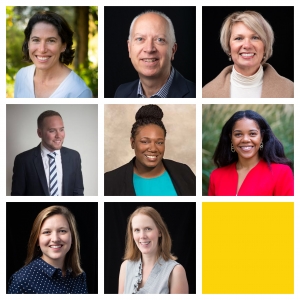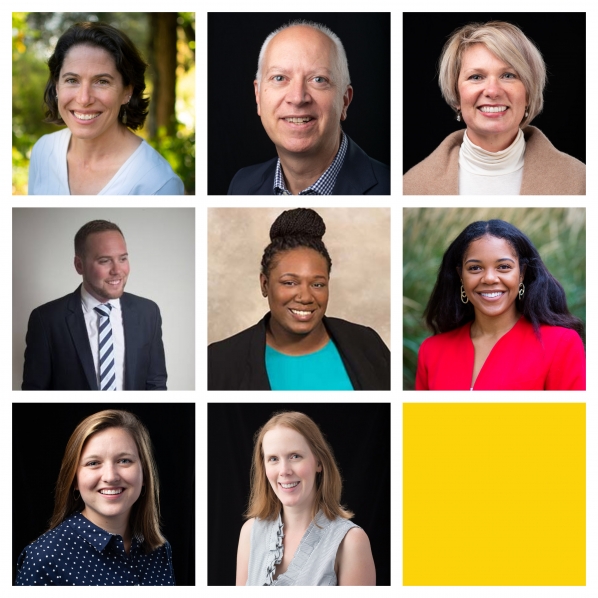This past summer, the Reich College of Education (RCOE) funded ten projects to support faculty and staff on research and creative projects through the Summer Scholarship Support Program. The purpose of the program is to provide support for the development of projects that implement elements of the RCOE Strategic Plan. Projects focused on the refinement of existing research or the creation of new research projects, development and refinement of instructional practices and strategies, engagement in policy development, and/or development of innovative professional development opportunities for faculty, staff or students. The awards were limited to $1000.00 per project.
For the December, January, and March RCOE Faculty and Staff meetings, recipients of the funds will present their projects. On January 28, 2022, the following projects will be featured:
Advancing Ecomedia Literacy through Cross-Cultural Collaboration and Enrichment
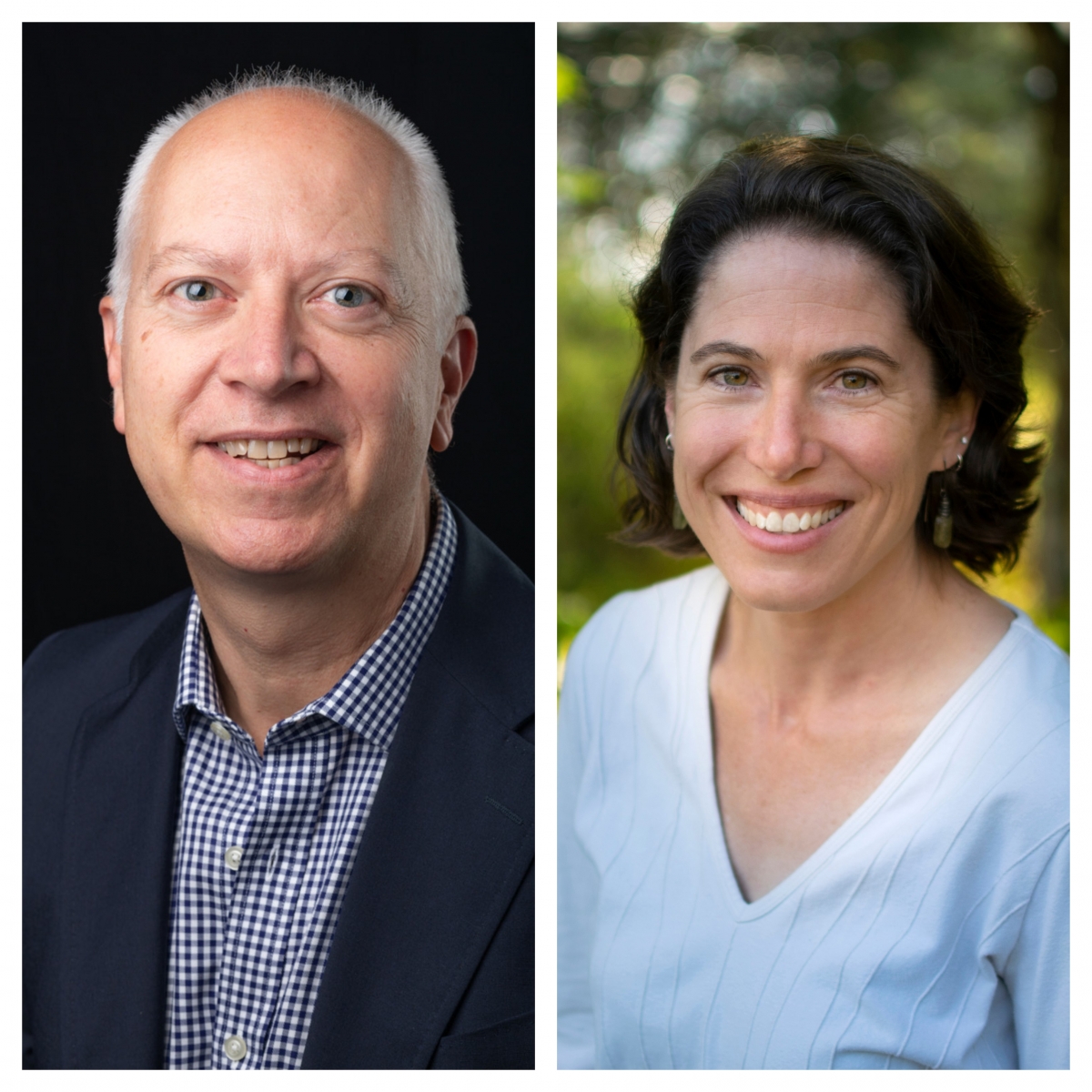
Professor of instructional technology in the Department of Leadership and Educational Studies Dr. Paul Wallace, and associate professor of media studies in the Department of Curriculum and Instruction, Dr. Theresa Redmond, will present their project entitled “Advancing Ecomedia Literacy through Cross-Cultural Collaboration and Enrichment.”
“The goal for this project is to develop cross-cultural activities related to digital media literacy between App State and international partner institutions, as an avenue to support student virtual exchange projects, future study abroad programs, collaborative research, and grant seeking,” noted Wallace.
“The success of school leaders and students in the 21st century requires an understanding of the world’s cultural traditions, appreciation of differences, and opportunities to work together in an increasingly globalized environment,” added Redmond.
Their project aligns with our RCOE Strategic Plan in multiple ways. “Primarily, we focused on alignment with direction three, goal three to enhance and increase international opportunities, programs, and partnerships and to explore international enrichment opportunities, which is addressed through virtual exchange activities between students in the RCOE and at BINUS University, located in Indonesia,” said Wallace.
“Additionally, many aspects of our work address strategic direction four, goal two through its emphasis on creating a more inclusive curriculum by demonstrating infusion of culturally relevant material into course content,” added Redmond.
“Importantly, our focus on digital media literacy enables us to not only infuse global learning but also to address issues of sustainability through ecomedia literacy,” she continued.
The next steps for their initiative include:
- enhancing visibility for ecomedia literacy,
- facilitating cross-cultural collaboration surrounding topics of global importance, and
- enhancing the rigor and richness of our graduate programs via cross-cultural communication.
Wallace’s research interests center around how people interact with technology in society and in learning contexts, through social robotics, telepresence, mixed reality, and new media narratives. His current research projects involve studying emotion and anxiety related to human interaction and collaboration with robots and artificial agents (digital humans) within learning environments.
Wallace has received several recognitions for his work including receiving the Chancellor’s Appalachian Innovation Scholars Award, for a project related to socially assistive robotics for traumatic brain injury (TBI) rehabilitation and outreach. He also led the Fulbright-Hays Group Projects Abroad Program to Indonesia and served as a U.S. Fulbright Scholar to Russia.
Redmond is an arts-based teacher and scholar with expertise in media literacy, instructional design, teacher education, and the arts. Her research interests are varied, comprising a complex hybrid agenda that focuses on issues of preparation, fluency, and empowerment in the digital age with an emphasis on the effects of creative inquiry and expression through arts-based pedagogy and remix on learning.
Graduate Orientation & Learning Summit (G.O.A.L.S.)
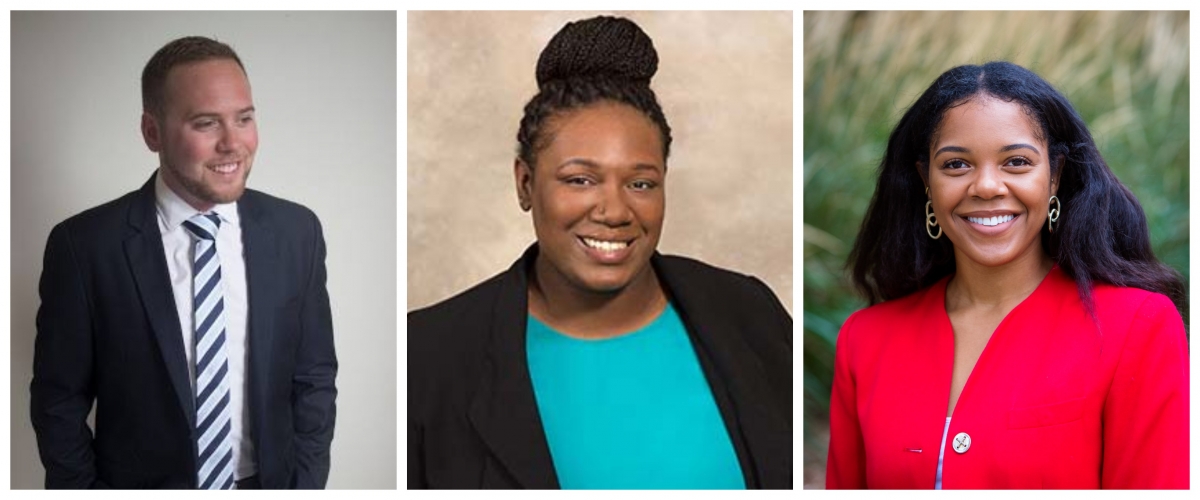
Dr. Ashley Carpenter, Dr. Jason Lynch, and Dr. Chauntee Thrill, who are all assistant professors in the Department of Leadership and Educational Studies, will present their project entitled “Graduate Orientation & Learning Summit (G.O.A.L.S.).”
Carpenter, Lynch, and Thrill teach in the higher education program, and their project is “aimed to develop and pilot a comprehensive virtual orientation for our incoming master's and education specialist's cohorts.”
“We realized that our current orientation program, which consisted of a 45-minute brief overview, left much to be desired and did not reflect the broader goals of the program,” noted Thrill.
“In building the new orientation, we sought out ways to build community amongst our graduate cohorts, decrease stress associated with transitioning into a graduate program, and to provide our students with resources to ensure holistic success,” she continued.
The Higher Education Program G.O.A.L.S. initiative directly fits into three of the strategic directions of the RCOE 2017-2022 Strategic Plan according to Lynch:
- “First, we address Strategic Direction 1 (Transformational Educational Experiences) Goal II (Student Identity) through rethinking the delivery and purpose of graduate orientation, with specific attention to cultural responsiveness within the context of our student population.”
- “Secondly, we address Strategic Direction 4 (Embracing Diversity) Goal I (Welcoming Environments) by intentionally focusing on relationship building between students and faculty, with particular focus on introducing the program’s values regarding diversity and multiculturalism.”
- “Finally, we address Strategic Direction 6 (Sustainability) Goal III (Responsive Digital Learning & Technology) by leveraging our online infrastructure to deliver a transformative virtual orientation for our graduate students that can be used as a model for other graduate programs.”
After students complete assessments of the initiative, the next steps are to submit the findings for publications and conference presentations.
Carpenter's scholarly research focuses on multicultural student development, institutional research, college access, and equity, diversity and inclusion, and identity development for marginalized communities.
Lynch’s research interests center on the impact of traumatic stress on educational organizations with specific regard to secondary traumatic stress, trauma-informed leadership, and trauma-informed organizations.
Thrill’s research efforts focus on understanding postsecondary educational access, STEM, college readiness, and academic success for minority student populations in community colleges.
Exploring Pathways Support Provided to Early Childhood Professionals
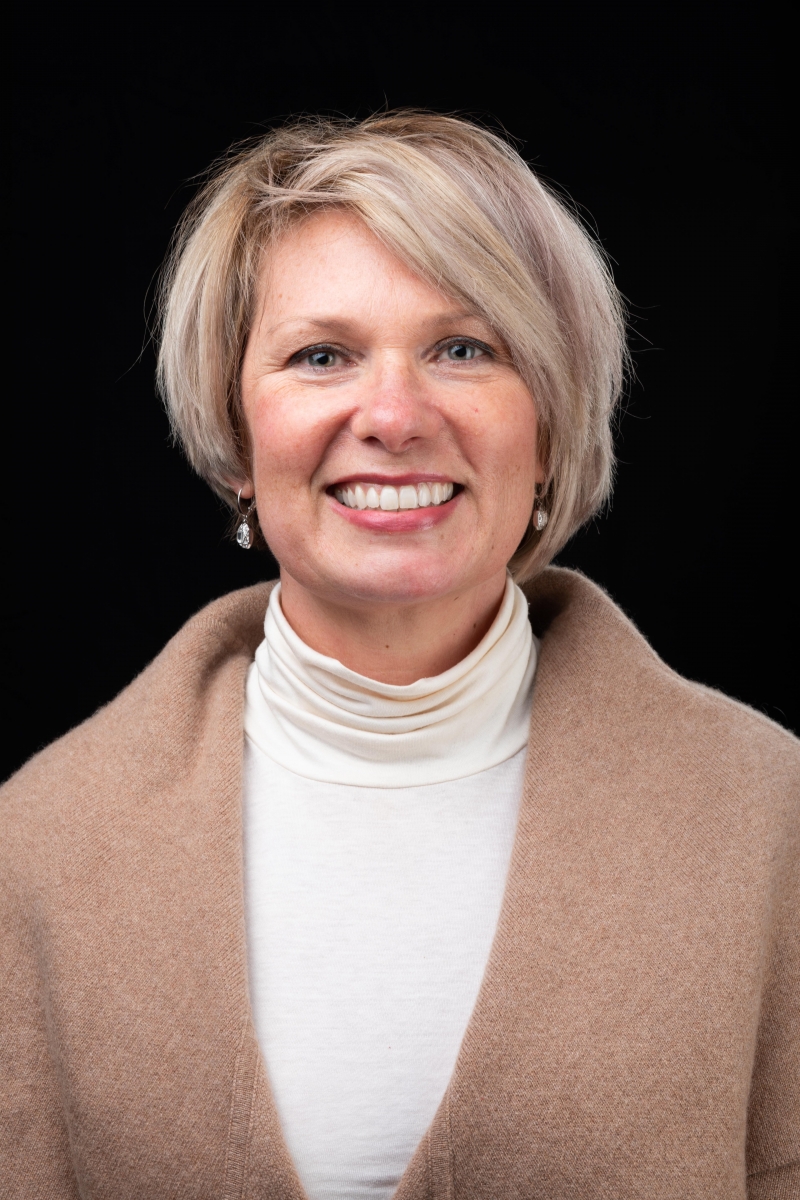
Both in the Department of Family and Child Studies, Dr. Pam Shue - an associate professor - and Dr. Heather Taylor - a lecturer - will present their project entitled “Exploring Pathways Support Provided to Early Childhood Professionals.”
Shue and Taylor partnered with Elevate Watauga (EW) to collect and analyze qualitative data and thus produce reports to demonstrate the effectiveness of early childhood education practices.
“EW is an initiative overseen by community stakeholders with a goal of advancing promising policies and programs to ensure every parent has the support they need to give their children a strong start in life,” noted Shue. “One of the projects involves supporting early educators and implementing practices that address the quality of early childcare.”
“Currently, EW is using various measurements to collect quantitative data on local early childcare programs, which includes 16 centers, and 30 teachers,” she continued. “However, EW does not have the capacity to collect the qualitative data, specifically interviewing early childhood teachers, directors, and parents so the “authentic story” can be documented and the data triangulated.”
The project aligns with the RCOE Strategic Plan in Goal I - Research and Creative Projects of Strategic Direction Two.
“The next steps for this project include follow-up research as well as the development of a manuscript,” said Taylor.
Previous research Taylor has conducted regarding support provided to early childhood professionals resulted in a recently published article in the Early Childhood Education Journal entitled, “I Need You to Show Me: Coaching Early Childhood Professionals.”
Shue’s research interests are early childhood language and literacy development and education, early childhood policy and practice, and professional development for pre- and in-service teachers.
Taylor’s research interests include pre-service and in-service preparation, streamlined professional development, and coaching support for those who strive to work with children and families in inclusive settings.
Teacher Literacy Knowledge and Student Contact Hours
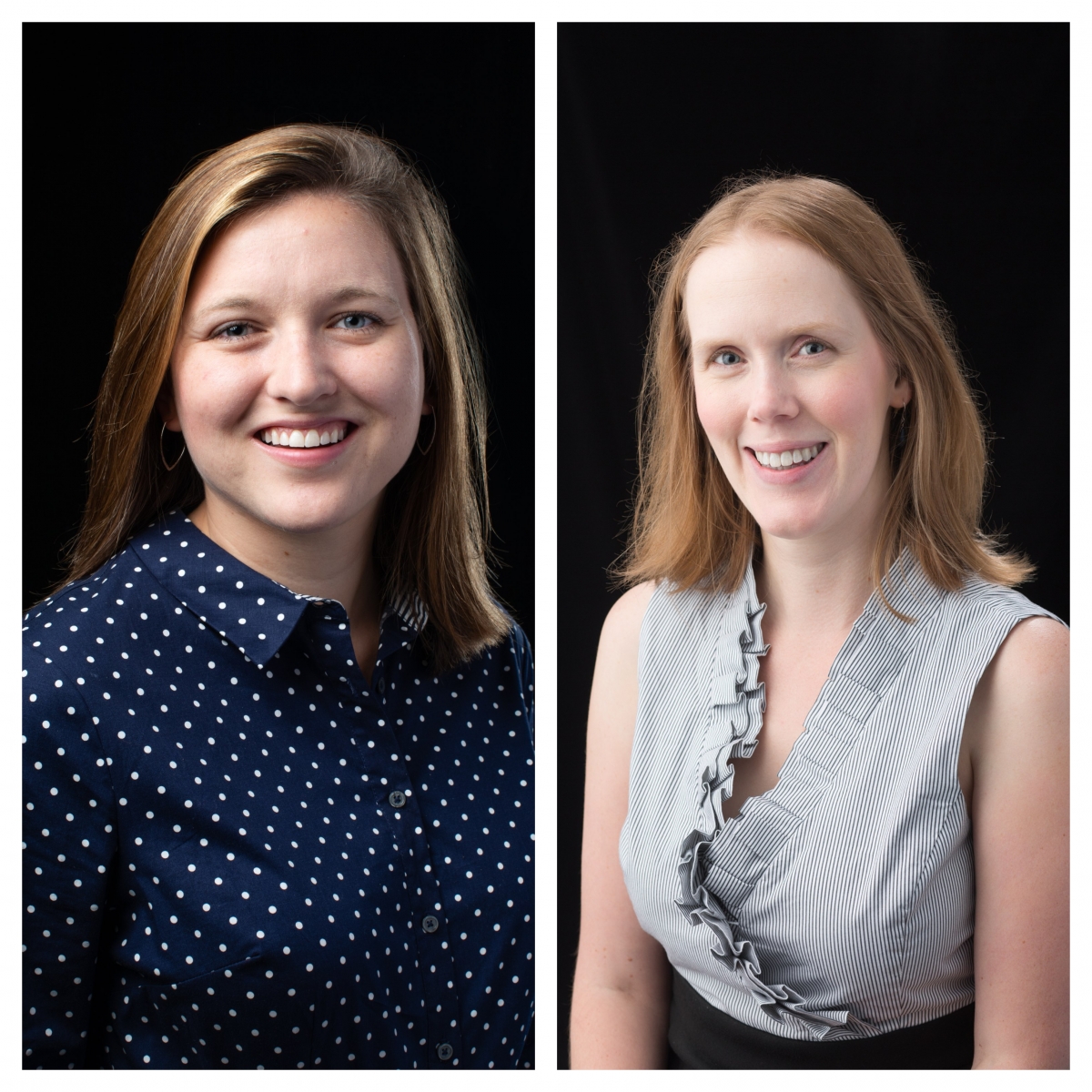
Both assistant professors in the Department of Reading Education and Special Education, Dr. Rebecca Payne Jordan and Dr. Ashley Pennell will present their project entitled “Teacher Literacy Knowledge and Student Contact Hours.”
Tied to Strategic Direction One, Goal Two: Student Identity and Transformation, their project collected data on the literacy knowledge and hours of instructional experience focused on literacy from students enrolled in the reading education master’s program. From this data, they hope to add to the ongoing national conversation around teacher literacy preparation.
“The data was collected in RE 5100 Teaching Beginning Readers and Writers and focused on pre- and in-service teachers’ literacy content knowledge in providing literacy instruction, as well as their self-reported estimates of how many hours of literacy-related instructional contact hours they had with students over the course of their career (a formula was provided to aid in this estimation),” noted Jordan.
“Better understanding how direct contact with children in instructional environments relates to teacher knowledge will better support us as a college as we examine the ways we support our students and its impact on them,” she added.
Additionally, the project is related to Strategic Direction Two, Goal One: Research and Creative Products. “As junior faculty, this scholarship support has allowed us to analyze data we began to collect in Fall 2020 to create a pilot data set, to recognize areas to pivot in our data collection strategy, and to identify ways we can partner with local school districts both to enhance the field’s knowledge as well as local teaching practice,” said Pennell.
Following initial data collection, teachers throughout North Carolina were recruited via the Public School Partnership to increase the sample size and to account for limitations in the original RE 5100 dataset. The next step for their project is to continue data analysis and submit for publication.
“Moreover, through work such as this project, the university and college continue to lead in early literacy teacher preparation in both practice and research,” added Jordan.
Jordan’s research agenda has a dual focus on both teachers and students. She seeks to better understand the literacy knowledge, skills, and beliefs of pre-service and in-service teachers and how those are developed and transformed.
Pennell’s research focuses on early literacy development and instruction, clinical teaching of reading for pre-service and in-service teachers, and instruction for children with reading difficulties.
